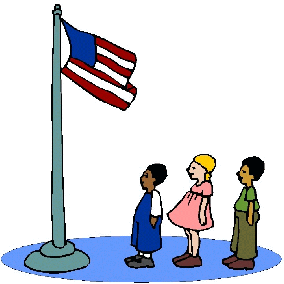|
HELPING CHILDREN COPE WITH FEARS DURING TIMES OF TERROR "Your children are not safe anywhere, at any time." This chilling statement was announced on television and headlined in newspapers after a sniper's bullet had already killed ten and critically wounded three, including a child. This hardly encouraged pleasant dreams for our children. Accounts of thirteen‑year‑old Elizabeth Smart, snatched from her own bed, where she slept peacefully with her sister, continue to frighten even relaxed children. Television watching of airplanes flying into the twin towers, skyscrapers crumbling, and masses of frightened people running through New York City's darkened streets has probably left a permanent traumatic scar on most of the children of this generation. September 11, 2001, initiated a time of terror into our children's lives. SURVEY ON EFFECTS OF Approximately six months after the terrorist attacks on New York and Washington, 5448 children in grades three through eight responded to our survey regarding their frequent worries. They were given a checklist of 25 potential worries, including terrorist attacks on our country, on their family, and the fear of flying. Children selected “worry about a terrorist attack on our country: more frequently than any other worries (30%). Selected by substantially fewer children were” Worries about attacks directly on their families (22%) and fear of flying (10%). Significantly more girls worried than boys and surprisingly, children who described themselves as having very good family relationships indicated they were worried about terrorist attacks more frequently than those who described their family relationships as very poor. Half of the 5448 children who were surveyed indicated they felt less safe now than before the terrorist attacks. More girls felt less safe than boys (58% to 42%), and the percentages of students who felt less safe decreased by grade in school from 61% in third grade to 40% in eighth grade. Surprisingly, again, children with good family relationships indicated they felt less safe than those children with poor family relationships (52% compared to 35%). CHILDREN HAVE CONFIDENCE Despite feelings of lack of safety, 82% of the children indicated the same or greater confidence in our country. Confidence in our country increased by children’s ages with THE FUTURE LOOKS BRIGHT Most children (81%) believed the future would be as bright or brighter than before. Older children in eighth grade were more optimistic about the future (79%) than younger children in third grade (69%), and children with very good grades (85%) were more optimistic about their futures than children with poor grades (73%). Family relationships also affected children's optimism about their futures. Eighty‑three percent of the children with very good family relationships thought the future could be as good or better than before, while only 69% of children with very poor family relationships indicated such optimism. Children's perceptions of their own intelligence also played a part in their coping with fears of terrorism and their optimism about the future. Children who perceived themselves as having above‑average abilities were likely to feel safer and to be more optimistic about the future than those who perceived themselves to have average or below‑average abilities. How Parents Can Help Children As adults, we, too, have been traumatized by the changing times of terrorism. We don't necessarily have answers for all our children's questions. It's difficult to respond to a ten‑year‑old child who says she can't believe people could be mean enough to kill so many people; or a seven‑year‑old who says he can't understand how Osama Bin Laden can escape with so many people and airplanes and guns trying to catch him. It is not easy to convince a child who can't sleep that "bad men" can't enter her room to steal her away, nor is it simple to explain to young people that they no longer can play on playgrounds or walk to school because there is a risk that a sniper may shoot at them. It appears from our survey data that communication by parents is helpful. Although too much communication may have the effect of increasing children's awareness of danger, it also seems to give children greater hope for their future and more confidence in their country. The overall objectives for parents are to help children become aware of what has happened, to permit them to think through the potential dangers, and to believe that, for the most part, they can feel relatively safe. Children deserve to be able to feel trust in our country. They should be able to have confidence that the adults in their world can keep their future safe. Here are some tips for parents for communicating to their children as we face potential difficult years ahead:
©2001 by Sylvia B. Rimm. All rights reserved. This publication, or parts thereof, may not be reproduced in any form without written permission of the author. |
©2010 by Sylvia B. Rimm. All rights reserved.
Report any problems with this site to Webmaster@sylviarimm.com

 34% of third graders and 53% of eighth graders having more confidence in our country. Children who earned better grades in school indicated more frequently than children with poor grades that they had confidence in our country (55% compared to 36%).
34% of third graders and 53% of eighth graders having more confidence in our country. Children who earned better grades in school indicated more frequently than children with poor grades that they had confidence in our country (55% compared to 36%).
 leave children fearful. Try to simplify your answers to match their vocabulary without going beyond the questions they’re asking. Assure them that no question they have is too silly to ask.
leave children fearful. Try to simplify your answers to match their vocabulary without going beyond the questions they’re asking. Assure them that no question they have is too silly to ask.